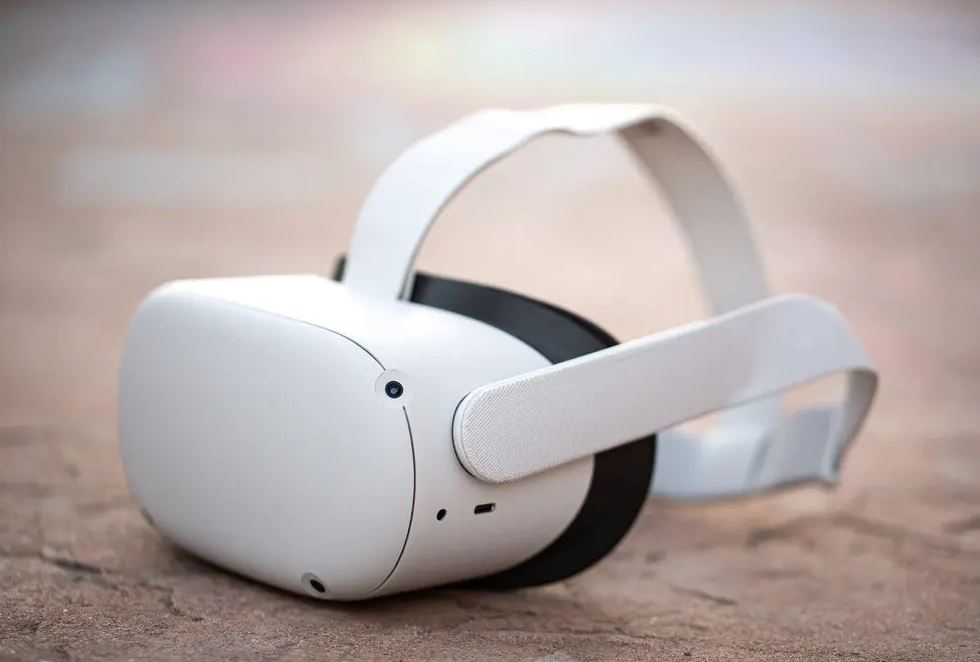Facebook and Instagram owner Meta said in a blog post on Friday that it aims to drop the recommended age for wearing its Quest headset from 13 to 10. This might raise fresh privacy and safety issues with parents and worldwide watchdogs.
Two persons familiar with Meta’s contacts with authorities have said that the business is now discussing its intentions with those individuals and attempting to allay immediate worries about whether or not younger children wearing the headgear may be vulnerable to increased danger.
Meta said that young users would only access applications and material rated for the preteen age range, and that a parent’s permission would be required for a preteen to create an account. The Quest headgear opens up a whole new realm of virtual reality gaming and other applications by letting users into the so-called metaverse, an immersive digital environment.
Over the course of the last year, Meta has gradually lowered the minimum age requirement for its virtual reality applications in an effort to attract younger viewers. The business said in April that its virtual reality-based social network, Horizon Worlds, will be accessible to users under the age of 18. As previously reported by The Verge, users of Horizon Worlds must be at least 13 years old.
The potential dangers of virtual reality are continuously being uncovered since the technology is so young. However, academics have warned that harassment, assaults, bullying, and hate speech are already rife in virtual reality games, which are part of the metaverse, and that there are few means to readily report the misbehaviour.
Concerns have increased, prompting response from the authorities. Recent months have seen a stepped-up effort by the FTC to punish computer firms that violate a statute protecting the privacy of minors. Under the Children’s Online Privacy Protection Act, any app or website aimed at children under the age of 13 must first get parental permission before collecting any personally identifiable information from that kid.
Regulators have had special concerns about Meta and its platforms. The F.T.C. warned last month that the company’s “recklessness” had placed young users at danger, and it was contemplating taking measures to prevent Meta from benefiting from the data of young on including and Horizon Worlds. In response, Meta filed a petition with a federal court, asking that the action be halted.
Because of how important it is for Meta’s future to create a virtual reality-based version of the metaverse, the Quest headset’s age limit has been raised. CEO and creator Mark Zuckerberg has spent the previous two years adapting his social networking firm for use in the virtual world. He invested roughly $14 billion last year in the company’s Reality Labs division, which is responsible for hardware development and the metaverse.
Wall Street was scared off by the hefty expenses of attempting to make the metaverse a mainstream company, which sent Meta’s shares plummeting last year. Since the introduction of chatbots like ChatGPT, the interest in the metaverse has also declined, as more developers have turned their attention to the advent of artificial intelligence. Mr. Zuckerberg has also pushed for artificial intelligence (AI) features in Meta’s offerings.
He has, however, reiterated his dedication to the metaverse. Last week, Mr. Zuckerberg held a company-wide meeting in which he told staff that he was still dedicated to his goals for virtual reality and augmented reality and that the road to realising his vision would be lengthy.
Similar to how Facebook first launched on college campuses in 2004, lowering the minimum age limit for the company’s Quest headgear might help familiarise younger audiences with the metaverse, increasing the likelihood that they would continue using the technology as they mature.
Following the lead of other gaming businesses like Roblox, Microsoft with its Minecraft game, and Epic Games, the creators of Fortnite, Meta is certainly aiming to embed itself into the daily lives of young people. There are hundreds of millions of people that play such games, and a large percentage of them are under the age of 35.
Two anonymous sources familiar with Meta’s intentions said the business is making efforts to reassure authorities that parental controls would be available to prevent minors from accessing inappropriate content on the gadget. Time restrictions, parental supervision of applications and material, and privacy controls ensure that other users of Horizon Worlds can’t spy on preteens without their knowledge and consent.
The firm said it would utilise information gathered from preteens testing the Quest headgear to create a “age-appropriate experience,” but it would not target these users with advertisements. The profiles and information linked with minors may be removed by parents as well.
